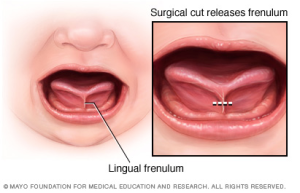I can hear and feel my inner-childish-poetry critic scold me now…
“It’s immature,” he boasts…
And this may be true, after all this form of poetry is considered useful now, in many ways only, for mnemonic memory devices and nursery rhymes and adolescent word play.
“You see? One of the first hits on Google is Alliteration Poetry for Kids…”
I can’t help but then imagine this to be one of the more important poetic forms for myself. I’m reminded of the BBC series, “The Human Animal,” which, after all 6 episodes, ends on retaining elements of childhood play into adulthood as the most fundamental and important features that make us as human.
“As soon as our basic needs are satisfied, as soon as we’ve gone beyond survival – we’re off and running. “The Naked Ape,” should really be rechristened, “The Creative Ape.” At our best we remain, all our lives, childlike adults ready, at the slightest excuse, to indulge in mature play… To many people our greatest achievements are to be found in such pursuits as technology, medicine, politics and economics. But to me these are merely the means to one of two ends; either better human survival or better adult play. If ever we give this up and become depressingly earnest, pious adult-adults we’ll have betrayed our great biological heritage as the most exuberant, most mischievously imaginative animal on this planet.” – Desmond Morris
When our basic survival needs are met – we are galloping towards that with excites the child within us. One can almost think of the concept of neotony extending itself past our physical dimensions and lending to our personalities and choices as well.
It is with this that I find myself invested often in utilizing assonance and consonance to their brim when experimenting with alliterative play. When I write these poems I am taken, inevitably, to various linguistic mouth-map tools and International Phonetic Alphabet charts where I can’t stop myself from playing willingly with the various angles of my tongue in cheek and teeth abilities.
At one point I questioned to what extent I could use this… To what extent could I write a poem that would be not only exciting and fun but also useful and able to convey information appropriately instead of just being a childish and immature set of sounds?
When I set down to write this out – I couldn’t have imagined such a story to have been established. Nor for that matter could I have imagined I would have gifted myself the chance to use the word, “pachyderm,” well in any poem.
This is the poetic form I’ve been recently interested in understanding to it’s depths. If the poem itself weren’t as long as it is – I would type more about the history and references I came across when working on it. Needless to expound; its history is varied and useful…
“The Strumpet Sounds in a Sea-Side Shanty.”
Among the outlandish and the arrogant
sea side and somnolent
Is found a fair enough glance
(cared for and beauteous -)
behind a blue back alley bistro…
Tossing tricks at top hat tips
and staring so –
sadly and seraph like
our sensuous strumpet –
says “oh” to skies –
“Dear, and dreadful, desire
hire a hand to tend to tricks.
For tricks are tics, and ticks.
And ticks – tock, and tick and tock…
Dear fate, fear me, for fallen I have
and time, tended not to –
has tocked away into minute ticks.
And more I find I trust what’s moribund –
I see the end before the middle.”
Black palled and heaven mauling the skies
reigned, opened and reeked with histories dust,
“Must lust,” he asked fast, “trust not a
tramp who treats time as tusks?
A pachyderm’s ivory”
cried he,
“is he!
Time is neither lust nor trust
yet, trust himself must he – for time
as any machine fears, falling
failing himself and fending to rust.
Trust time, trust lust if you must, trust shores
and somnolence
A fair enough glance
is found fair enough
far fetched in further days…
Dear and Dreadful desire
shall hire no hand to tend to tricks!
For tricks will tick
and tock
and tick
and rich will the flowing
free fellow time be”
“tock away!”
They’ll say
“Tick away too!
Time is of essence
transcendence and grace
face the storm
and forlorn
your fair
beauteous, dreadful, endearing, and bereft…
Glance not at the skies
but the seas instead.
Stare straight at the self
and see the seas say,
my darling –
you are safe,
if you are your truest and entrusted self.”
